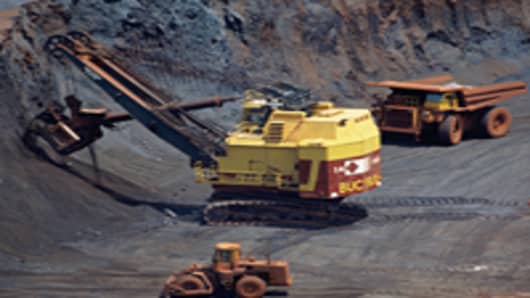Part of Schweitzer’s strategy is to promote Montana as a business state, doing everything he can to help local businesses thrive—even giving out his home phone number for house calls—while working to attract out-of-state companies to Montana.
“If you come out to Montana, you want to start a business, call me. Call me at my home number,” he said. “It’s in the book, and I’ll show you around.”
At 7.1 percent, the state has the 11th lowest unemployment ratein the nation, well below the 9.6 percent federal unemployment rate. Montana stands to gain 11,000 jobs under the American Recovery and Reinvestment Act, a sizeable number in population of just under a million people.
Last year, Governor Schweitzer took the question of state budget cuts back to the source, by asking Montanans which state services they felt should be decreased. The winners were extending the computer replacement cycle, cutting back on BlackBerrys for state employees, and reducing the number of state-owned cars on the road.
In response to criticism that he had to rely on average Montanans to help fix the state’s fiscal problems, Schweitzer said, “That’s exactly what they say in Washington DC. ‘Don’t sully us with all of your ideas out there from the country. Just because you can run your business more efficient, that doesn’t affect us in Washington DC.’”
“Hell yea it does,” he continued. “The best ideas have always come from small businesses. If you want to find out how to run a business more efficiently, ask someone who has ten employees, not somebody that has 100,000.”
While his state is among the smallest in the U.S. for population, Schweitzer emphasized that every state, regardless of size, has the same basic operations. He said that there is a feeling among Montanans that Washington, DC is broken, unable to accomplish change because it is too bogged down with budget costs and a bloated federal workforce.
“85 percent of Montana’s budget, as in every other state, is to educate, to medicate, to incarcerate, he said.
“Every one of us runs the same business. We might be a little smaller shop than the big shop but we have to buy our goods and services the way they do, we have to sell them the same way they do. So just because you’re a Wal-Mart , doesn’t mean that you’re not the same business as the ma and pa store down the road. We’re the ma and pa store that’s more efficient than Wal-Mart. “
Look for Nicole Lapin's interview with Montana Governor Brian Schweitzer on Tuesday, October 26 in her "States of Pain" report on "Worldwide Exchange,"5-6am ET on CNBC.



